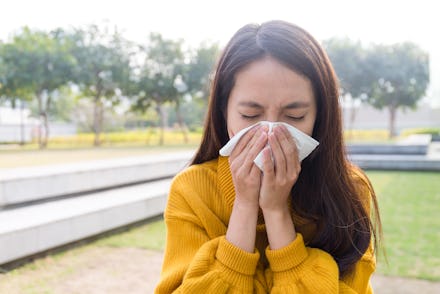Climate change means that your seasonal allergies could become year-f*cking-round

Climate change-related news is rarely uplifting, but this just sounds miserable. A new study has concluded that, because of a changing climate, "the number of people suffering hay fever from ragweed pollen could double in just 35 years," according to a press release from the University of East Anglia in Norwich, U.K.
Dr. Iain Lake, of the university's School of Environmental Sciences, was the lead researcher on the study, which was published Thursday in the the journal Environmental Health Perspectives. Lake and his team worked to "to quantify what the consequences of climate change on pollen allergy may be," he said in the release, and found that things are about to get way worse.
According to this study, ragweed pollen season will start earlier and end later, and the concentration of ragweed pollen will be higher in a changing climate — meaning that more people will feel its effects. "Our research shows that ragweed pollen allergy will become a common health problem across Europe, expanding into areas where it is currently uncommon," Lake said in the release.
This study looked specifically at the effects of climate change on allergies in Europe, but changes in the U.S. could be similar. "One would therefore assume that there would be impacts in the U.S. where ragweed is widespread," Lake told NBC's Today on Thursday. "However, without a specific U.S. study, it is impossible to be specific."